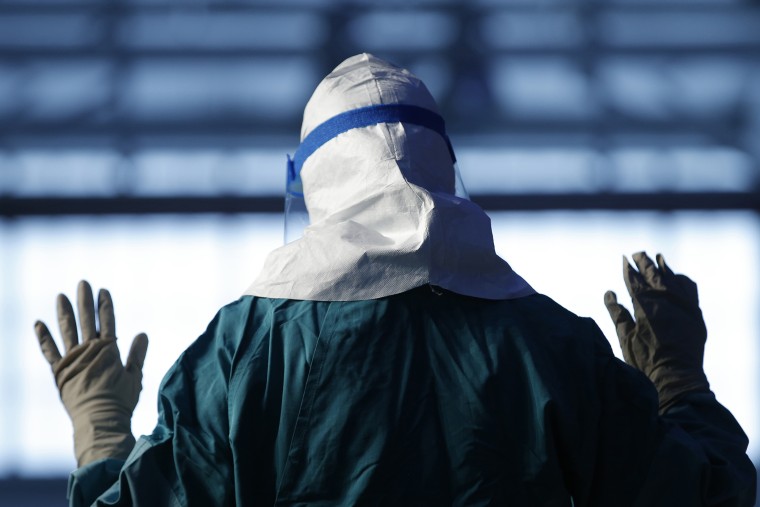Billionaire Paul G. Allen will donate $100 million to fight Ebola, the philanthropist and co-founder of Microsoft announced Thursday. This will quadruple his earlier promise to donate $26 million to various nonprofit groups and government agencies fighting the most deadly outbreak of the virus ever recorded.
He is one the largest individual donors to tackle the disease, which has killed nearly 5,000 people in West Africa and infected nearly 10,000, according to the World Health Organization. The promise of significant relief funds comes as more people are quarantined and placed on "watch lists," and the country works to contain the disease and prevent another outbreak on American soil.
A Connecticut family of six was quarantined after traveling in West Africa, West Haven Mayor Edward O’Brien said late Wednesday.
They don’t have any symptoms of Ebola, NBC News reported, but under the executive orders signed by Connecticut Gov. Dannel Malloy this month, anyone who has been travelling in Sierra Leone, Liberia, and Guinea must quarantine themselves for 21 days and take their temperature twice daily. The family will be monitored by public health workers, who will phone twice daily to check for signs of the disease.
RELATED: Ebola aid group worries about delays and staffing shortfalls
This is the latest Ebola containment effort that’s affected hundreds across the country who are being monitored by the authorities, told to stay home, or prohibited from travelling. While a week has passed since the last diagnosis and more and more high-risk healthcare workers have been cleared, many Americans still remain on edge as the deadly virus ravages West Africa.
In Ohio, 164 are still under the Center for Disease Control’s watch and three are under quarantine; in Texas, more than 100 are being monitored.
It will be weeks until those in America who are being watched are free from the restrictions put in place to preemptively curb possible spread of Ebola. Starting Monday, the CDC will also begin monitoring anyone who has traveled in the three West African countries hardest hit by the Ebola outbreak for the full virus incubation period, 21 days. That new measure will add hundreds more to the CDC’s watch lists.
Experts say this kind of contact tracing is key to protecting the U.S. from more cases of Ebola, but across the country, Americans are struggling with the implications of quarantines and anxiety that the disease could spread quickly.
There have been instances of forced, medically unnecessary quarantines and ostracizing due to Ebola panic: Rwandan students in New Jersey are being told to stay home for three weeks, despite the fact that Rwanda is thousands of miles from the epicenter of the Ebola outbreak. In Mississippi, a school principal who visited Zambia (even farther away from the outbreak than Rwanda) is prompting parents to keep their students home. A family who had traveled to Ethiopia — which is across the continent and considered East Africa — to adopt a child was ostracized by fellow parents despite the fact that Ethiopia has fewer cases of Ebola than the U.S.
Meanwhile, states are rushing to prepare themselves.
In Illinois, both the state and the city of Chicago have launched Ebola-related preparation forces, readying hospitals for the possible handling of Ebola cases. On Wednesday, the governor also announced that he would signed an executive order creating a task force with the state’s Department of Public Health, “to further strengthen our ability to respond to Ebola,” a release said. One of the five airports passengers from Ebola-stricken nations may travel through is in Chicago.
Texas, ground zero for the American outbreak, has also hurried to create testing, treatment, and preparedness protocols and facilities, with Gov. Rick Perry speaking regularly and updating the public about their efforts.
